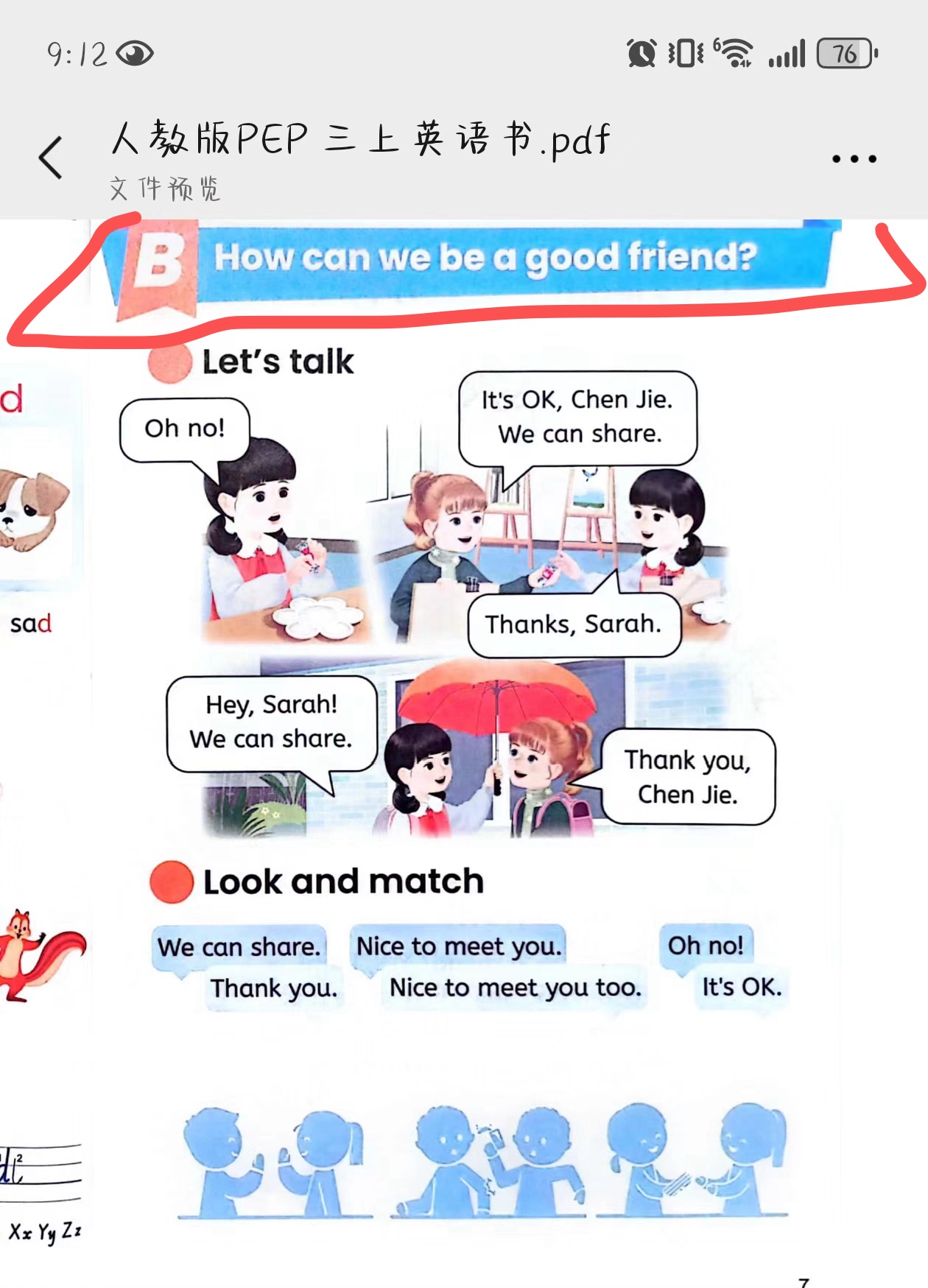This is the latest English textbook from China. Could you take a look at the title and see if it sounds right to you: 'How can we be a good friend?' Does the grammar and meaning make sense to you? As a native speaker, how would you phrase this if you were talking to a child?
My concern is whether this sentence is suitable for a title on this page for G3. I’m not entirely sure if it fits the context of the image. In my opinion, the grammar is correct. But is it natural and widely used?

